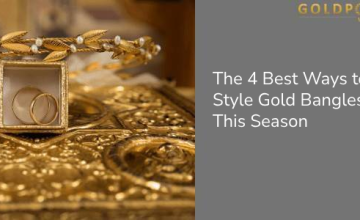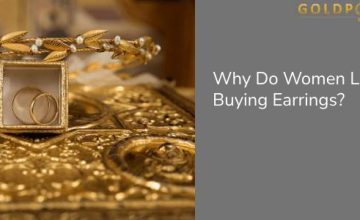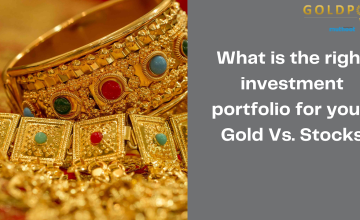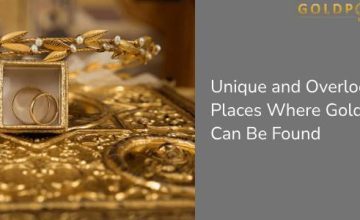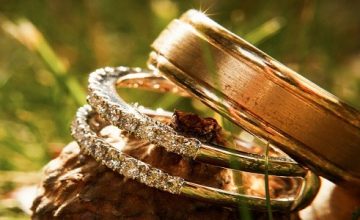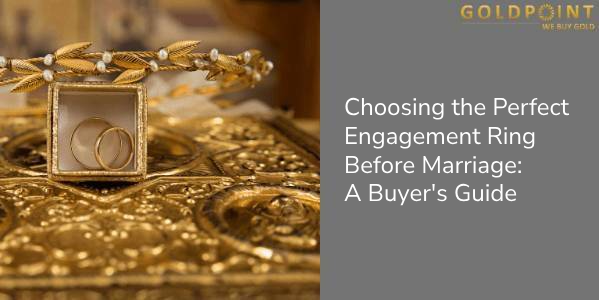
- മാര്, 05 2024
- | Gold Rate
Choosing the Perfect Engagement Ring Before Marriage: A Buyer’s Guide
Choosing the perfect engagement ring involves more than just selecting a dazzling gemstone. The placement of the ring, whether on the left or right hand, holds cultural, symbolic, and practical significance. In this buyer’s guide, we delve into the fascinating world of engagement ring traditions, exploring the meaning behind finger choices in Western and Eastern cultures. Beyond cultural norms, we examine additional factors influencing this decision, from personal preferences to lifestyle considerations. Ultimately, couples navigate the delicate balance between tradition and individuality as they embark on the meaningful path of selecting their symbol of eternal love.
On which hand do you wear the engagement ring?
Engagement rings hold profound significance as enduring symbols of love and commitment across diverse cultures worldwide. Set with rich history and cultural traditions, these sparkling adornments often spark curiosity about their placement on specific hands. In this exploration, we’ll get into the meaning and symbolism behind engagement ring fingers in various cultures, shedding light on the reasons for wearing them on particular hands. Take a look at modern trends and alternatives gaining attraction, and insight for couples seeking to honour tradition or forge their unique path to love and commitment.
Traditional Practices Followed in Western Cultures
In Western societies, wearing engagement rings on the left hand’s ring finger is a deeply rooted tradition. Originating from ancient Egypt and Rome, where the “vein of love” was believed to connect directly to the heart, this practice symbolises eternal love and commitment. Despite variations in engagement rings on hand, the placement on the left-hand remains consistent across cultures.
Eastern Cultures: Engagement Ring Customs
Unlike the predominant left-hand tradition in Western cultures, Eastern cultures such as India, Russia, and parts of the Middle East have their customs regarding the placement of engagement rings. In these regions, it is common to wear the engagement ring on the right-hand ring finger.
This preference for which hand engagement ring to wear is deeply rooted in cultural beliefs and superstitions unique to each area. For instance, in Indian tradition, the right-hand holds special significance and is often considered more auspicious for wearing jewellery. Similarly, in Russia, placing the engagement ring on the right hand is believed to attract good fortune and prosperity to the couple’s union.
Choosing which hand to wear engagement rings: Other factors to Consider
While tradition and practicality often guide the decision of which hand to wear engagement rings on, there are additional factors that couples may consider. Personal preference plays a significant role, as some individuals may have a strong attachment to a particular engagement hand or finger. Cultural background can also influence this choice, as certain cultures have specific customs regarding ring placement.
Symbolism can impact the decision-making process. Some may associate one hand with concepts like strength or femininity, leading them to choose that hand for their engagement ring. Additionally, sentimental reasons, such as wanting to match a partner’s ring placement or wearing the ring on the same hand as a family heirloom, can also influence the decision.
Considerations such as comfort, aesthetics, and lifestyle may come into play. Couples may prioritise wearing the ring on the hand that feels most comfortable or complements their daily activities.
- Comfort and Practicality as Key Considerations:When couples decide which hand to wear their engagement ring on, comfort and practicality take precedence. Choosing the non-dominant hand minimises the risk of damage, particularly for rings with intricate adornments like gemstones or intricate designs. This choice ensures that daily tasks remain manageable without compromising the beauty or integrity of the ring.
- How Wearing the Ring on the Non-Dominant Hand Affects Daily Tasks: The decision of which hand to wear the engagement ring on is often influenced by lifestyle and profession. Those engaged in hands-on activities, such as craftsmen, athletes, or healthcare professionals, may find it more practical to wear the ring on their non-dominant hand. This choice ensures ease and safety during daily tasks, minimising the risk of damage or discomfort as seen in engagement hand pics.
- Coordinating the Engagement Ring and Wedding Band Positions: When couples choose their ring placement, they deliberate between stacking their engagement rings and wedding bands or wearing them on separate hands. Sets enhance each other’s beauty when worn together. Opting for stacking creates a unified and elegant look, symbolising the bond between engagement and marriage.
- Pros and Cons of Different Combinations: Combining engagement and wedding rings on the same finger fosters a sense of unity, symbolising the inseparable bond between the couple. Conversely, separate placements accentuate the individual beauty and significance of each ring. Couples carefully consider both aesthetic appeal and practicality when deciding on engagement rings on hand. While stacked rings create a cohesive and elegant appearance, separate placements offer versatility and allow each ring to stand out on its own.
- Creating New Traditions that Honour Personal Values: Some couples opt to create new engagement rituals that resonate with their shared values. While honouring their cultural heritage, they also embrace their uniqueness. These innovative practices may involve personalised ceremonies, unconventional ring placements, or symbolic gestures that hold personal significance. By forging new traditions, couples celebrate their love authentically, infusing their engagement journey with meaning and depth.
- Balancing Respect for Heritage with Individuality: In modern relationships, the intertwining of individuality with cultural heritage holds great significance. Couples navigate this balance by honouring traditional customs while also expressing their unique preferences creatively. This harmonious blend allows them to maintain the richness of cultural traditions while embracing the freedom to customise their experiences.
Choosing the perfect engagement ring involves a blend of tradition, personal preference, and practicality. Whether following cultural customs or forging new traditions, couples are set to symbolise love, commitment, and individuality. However, if you’re considering selling gold, understanding its value is crucial. A gold calculator helps estimate its worth based on weight and purity. This tool ensures transparency in transactions, helping sellers to negotiate fair deals confidently. Additionally, cash for gold services by Muthoot Gold Point offers immediate financial support, making it a convenient option for those in need of quick funds.




